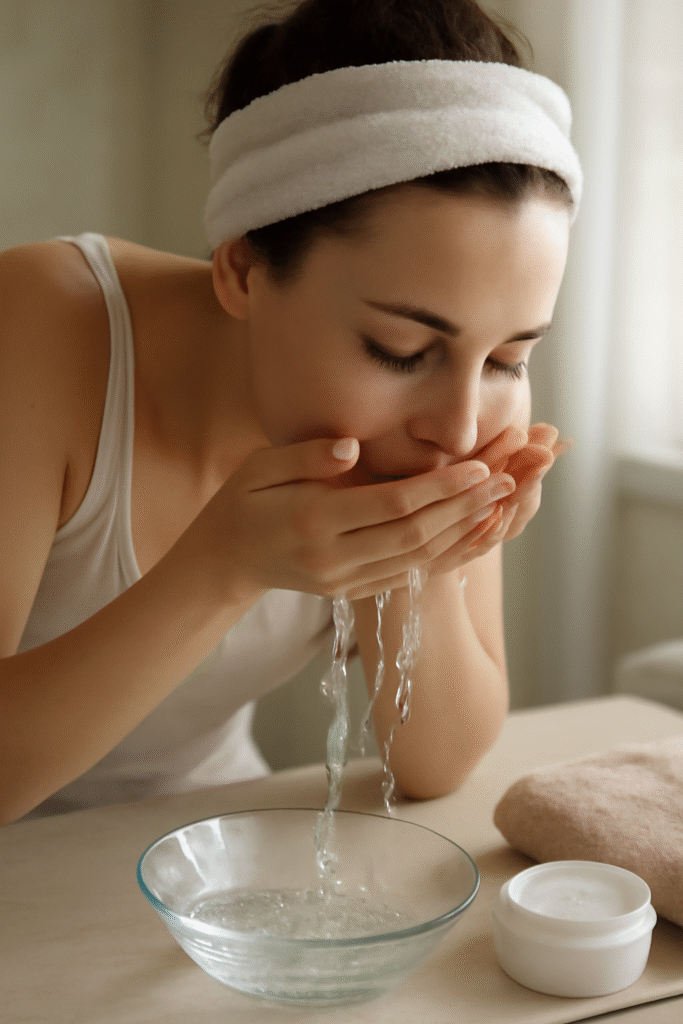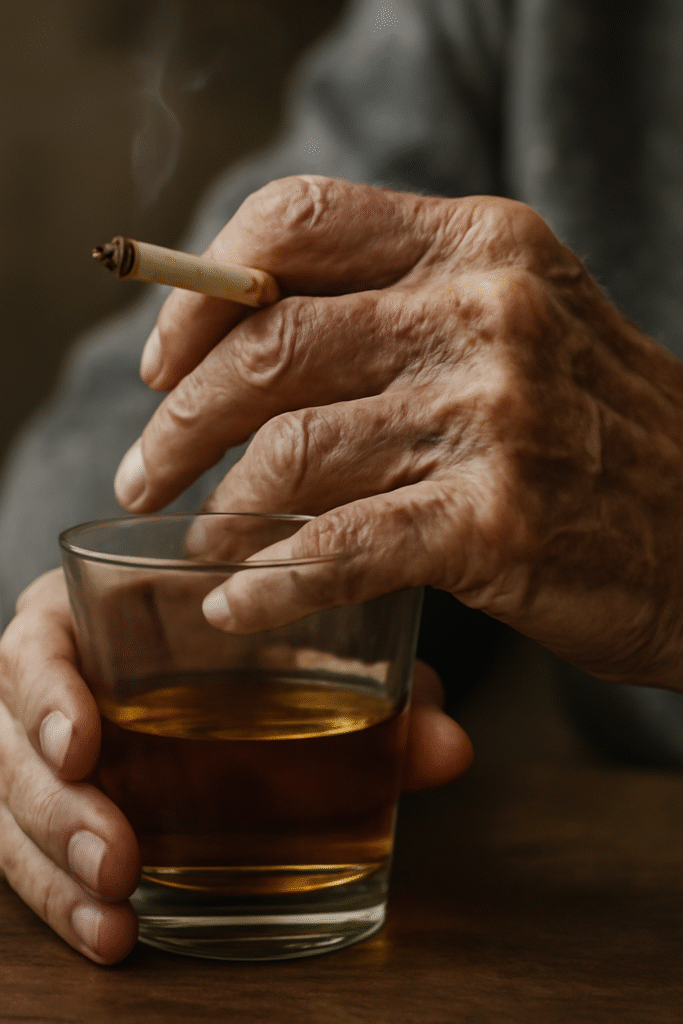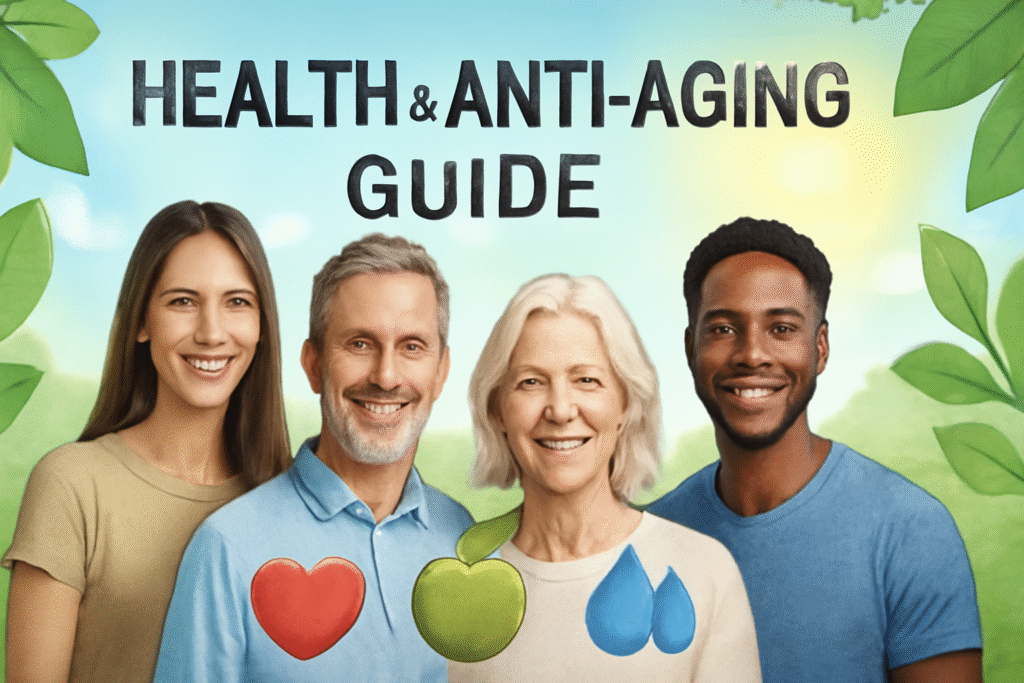- 1. Sleep- vital to overall good health. What is the recommended amount of sleep for promoting healthy aging?
- Aiming for 7-9 hours of sleep per night allows the body to repair and rejuvenate itself, promoting healthy aging. Sleep in the dark!
- 2. Nutrition/Supplements – I say you can’t beat it if you feed it when it comes to cancer. The same is true with feeding your body vital minerals and nutrients- they can’t stay healthy unless you feed them every day.
- 3. Lack of healthy sunlight. People are afraid of sun damage, which can significantly contribute to dry skin, leading to premature aging. I’m not a fan of sunscreen, there are healthier ways of prevention – like protective clothing, long sleeves, wearing wide-brimmed hats and sunglasses when outside helps shield your skin from the midday sun’s stronger rays. offering additional protection against premature aging.

2. SKIN- Why is moisturizing your skin and gentle cleansing important for anti-aging?
- 1. Gentle cleansing removes dirt and oil without stripping the skin’s natural moisture, maintaining its health and preventing premature aging.Mistake people make they use products that contain numerous toxic chemicals in them, gentleness is the key here, water cleans skin/ skin is 72% water.
- 2. Stay hydrated!- Keeping the skin hydrated by applying a moisturizer daily, especially after showering, helps maintain its elasticity and prevents premature aging. Hydration vital to all cells and organs.
- 3. Antioxidants like vitamin C protect the skin from environmental damage, which can lead to premature aging.
- 4. Tanning Beds – What are the risks associated with tanning beds in the context of anti-aging?
- Tanning beds emit harmful UV rays that accelerate skin aging, contributing to premature aging and increasing the risk of skin damage.
- 5. How does diet influence skin aging?
- A diet rich in fruits, vegetables, and lean proteins helps the body keep skin cells replenished.
- Also helps prevent damage that leads to premature skin aging by nourishing the cells inside the body from the inside.
1. Regular physical activity improves circulation and boosts the immune system, promoting healthy skin and aging.
5. Alcohol –Why should alcohol consumption be limited in an anti-aging lifestyle?
1. Alcohol can dehydrate the skin and contribute to premature aging, so reducing or eliminating alcohol consumption is advisable.
6. What impact does smoking have on the aging process of the skin?
1. Smoking significantly speeds up skin aging, leading to wrinkles and a dull complexion. Lungs are built for air not smoke. The current studies out on vaping is very alarming, look up “The dangers of vaping”.7. Stress- How can stress management contribute to anti-aging?
1. Managing stress through exercise, meditation, prayer, or spending time in nature and with people you love can slow down the aging process by reducing its accelerative effects on the body.8. Why are regular checkups important for anti-aging?
1. Scheduling regular checkups and screenings helps proactively manage
health, detecting potential issues early and promoting a healthier, longer life.


– Total cholesterol: The overall amount of cholesterol in the blood, including both good (HDL) and bad (LDL) cholesterol.
– Low-density lipoprotein (LDL) cholesterol: Often referred to as “bad” cholesterol, high levels can lead to a buildup of cholesterol in arteries, increasing the risk of heart disease and stroke.
– High-density lipoprotein (HDL) cholesterol: Known as “good” cholesterol, it helps remove other forms of cholesterol from the bloodstream. Higher levels of HDL cholesterol are associated with a lower risk of heart disease.
– Triglycerides: A type of fat found in the blood. High levels of triglycerides can increase the risk of coronary artery disease, especially when accompanied by low HDL cholesterol or high LDL cholesterol.

